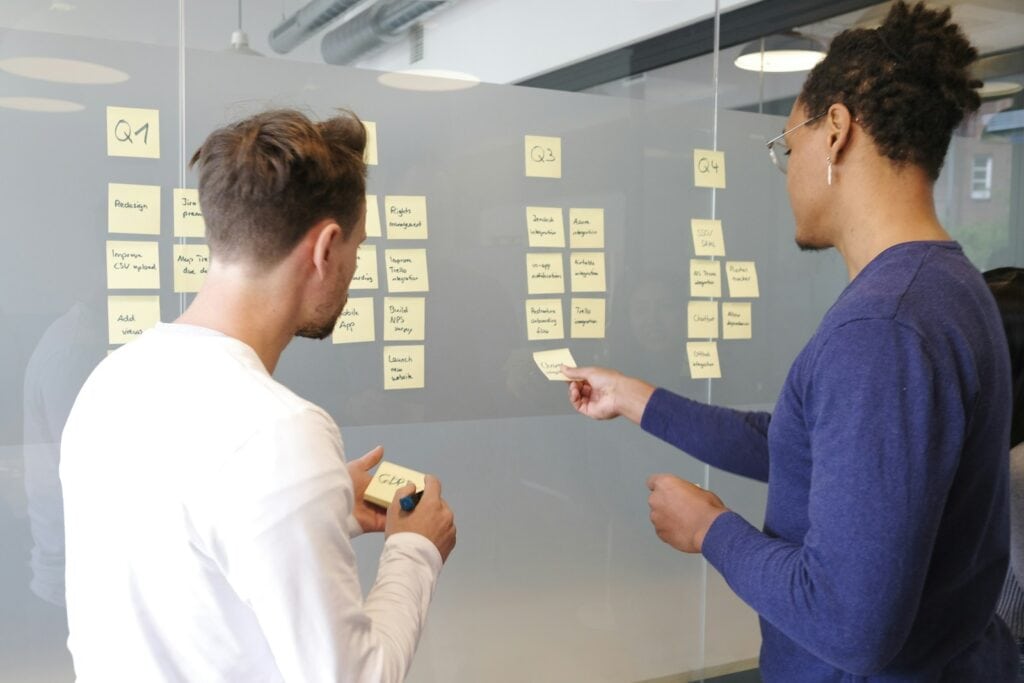Contents
- Collaboration Skills Can Boost Your Career
- The Significance of Documentation Proficiency
- Teamwork Makes the Dream Work
- Time Management Techniques
- The Role of Version Control Systems
- Critical Thinking and Adaptability
- The Value of Willingness To Learn
- Attention to Detail Pays
- Leadership Skills and Their Impact
- Conclusion: Unlocking the Hidden Powers in Your Developer Career
Of course, when you think of a developer or software engineer, the first thing you think of is technical proficiency in a myriad of programming languages, and rightfully so. It is a very important skill to master and retain to be relevant in today’s tech world. However, because of the prevalence of this certain aspect, many other extremely beneficial and important skills go overlooked or unnoticed. Some of these essential skills are sometimes even more important than technical proficiency, and if you can illustrate them during an interview or in front of your supervisor at work, can easily get you hired or promoted. In this read, we will talk about some of these specific overlooked developer skills to learn that will get you hired and why they are so important in the tech industry.
Collaboration Skills Can Boost Your Career
Collaboration is the cornerstone of success in the fast-paced and ever-evolving world of software development. As a developer, I have come to realize that the ability to work effectively with others is just as important as technical expertise. It is often the overlooked collaboration skills that can truly catapult your career to new heights. One such skill is effective communication. As developers, we are often part of complex projects that require working with teams consisting of diverse members. On a single project, you might have to talk and work with different members of the company, including project managers, team leads, scrum masters, data analysts, and of course other developers. Being able to articulate ideas clearly, actively listen, and provide constructive feedback are all essential components of effective communication that foster collaboration and innovation.
Communication skills are the foundation upon which collaboration is built. Whether it’s discussing project requirements, brainstorming ideas, or resolving conflicts, effective communication is key to ensuring that everyone is on the same page. It involves not only expressing oneself clearly but also actively listening to others and being open to different perspectives. By cultivating strong communication skills, you can foster an environment of trust and understanding, leading to smoother collaboration and ultimately better outcomes.

The Significance of Documentation Proficiency
One of the most overlooked skills has got to be documentation expertise. In the evolving world of software development, documentation is often underestimated but plays a crucial role in sustainability and success. Documenting project requirements, design decisions, and code changes not only helps in maintaining clarity and consistency but also aids in knowledge transfer among team members. In most companies, documentation is one of the least sought-after duties, which ironically makes it the perfect skill to learn, master and embrace.
By dedicating time to develop proficiency in documentation, you can ensure that your collaborative projects have thorough documentation, thereby reducing the risk of miscommunication and enhancing the overall efficiency of the development process. Just think about it, even months after a project is completed and something needs to be updated or changed, they go to YOUR documentation to see how it works and how it can be changed. If the documentation is thorough, complete, and easy to read and understand, this can make you a very important piece in the puzzle and leaves a lasting impression of you to your company, and your co-workers.
Teamwork Makes the Dream Work
No project is ever accomplished alone. The ability to work seamlessly within a team is one of the best ways to achieve success in any company. If you can become that somebody everybody loves to work with, you will undoubtedly climb the corporate ladder or get that job you have been eyeing.
Teamwork involves not only sharing ideas and responsibilities but also supporting and motivating each other. It requires a willingness to collaborate, compromise, and respect the expertise of others. Just being supportive, friendly, and nice to others can go a long way. You can even throw in some compliments or shoutouts to some team members who helped with the project. By promoting and fostering a culture of teamwork, you can harness the collective intelligence and skills of your team, leading to higher-quality deliverables and increased project success, ultimately leading to your own career growth.

Time Management Techniques
Time is a precious resource in the fast-paced world of software development. Developers must efficiently manage their time to ensure collaborative projects stay on track and meet deadlines. One effective technique is breaking down tasks into smaller, manageable chunks and setting realistic timelines. Prioritizing tasks, avoiding multitasking, and leveraging time-tracking tools are also helpful in managing time effectively.
By mastering time management techniques, you can not only meet project deadlines more efficiently but also create a conducive environment for collaboration to thrive. Being that reliable person who always has time on their calendar can make you stand out. If a co-worker can always depend on you to take and make important meetings, you will become an irreplaceable asset.

The Role of Version Control Systems
Version control systems are invaluable tools in collaborative development. They allow multiple developers to work on the same codebase simultaneously, keeping track of changes and facilitating smooth collaboration. By utilizing version control systems, developers can work on different features without interfering with each other’s work. This fosters collaboration by ensuring that everyone is working on the latest version of the code and enables easy identification and resolution of conflicts. Proficiency in version control systems is, therefore, a skill that every developer should possess to unleash the power of collaboration.
The perfect version control system to learn could be something like Github. If you would like further information, take a look at our other blog post on mastering Github and version control.

Critical Thinking and Adaptability
Collaborative environments often present challenges and require quick thinking and adaptability. Critical thinking skills help in analyzing problems, evaluating potential solutions, and making informed decisions. Being the one who always comes up with well-thought-out ideas can easily set you apart. Of course, this skill usually develops and evolves with experience, but even giving fresh and thoughtful ideas as a new or junior developer can help foster more insight to solve a particular problem or idea. So, never be afraid to speak up and add your opinion if you have that urge to do so!
Being adaptable allows you to navigate through changing project requirements and work effectively in diverse teams. As you approach collaborative projects with a problem-solving mindset and adapt to dynamic situations, you contribute meaningfully to project success. Talking to people about various aspects showcases you are a ‘perfect fit’. In many of the jobs I had, it proved best to know a little about a lot than vice versa.
The Value of Willingness To Learn
A willingness to learn is often overlooked but is an invaluable skill in software development. Technology is constantly evolving, and as a developer, it is essential to stay updated and continuously learn new skills and tools. Additionally, when you don’t know something, the willingness to learn and master it can establish you as an inquisitive employee. When facing a change or new challenge, will you overcome it, or will you fold? Software engineers are often associated with stubbornness and arrogance, so being curious and open-minded sets you apart. Don’t be afraid to take on new challenges and technologies, as they can only enhance your career and professional development.
Some of my favorite resources for learning and developing new skills are Coursera, DataCamp, and edX.

Attention to Detail Pays
Paying attention to detail ensures that you catch potential errors and inconsistencies early on, saving time and effort. By embracing a growth mindset and actively paying attention to the finer details, you can significantly enhance your collaborative skills and contribute to the success of your projects. By ensuring all the I’s are dotted and T’s are crossed, you will be a beneficial part of any team. Additionally, you give yourself the ability to learn new things that might have gone overlooked or unnoticed.
Leadership Skills and Their Impact
Leadership skills are not limited to management roles; they are equally important in collaborative projects. Having leadership skills doesn’t always mean telling people what to do. Rather, a good leader inspires and motivates team members, fosters a positive work environment, and ensures that everyone is working towards a common goal. Leadership skills can include setting up routine knowledge transfer meetings with other developers, making informed decisions, or bringing up new creative ideas. By developing leadership skills, you can take charge of collaborative projects and drive them toward success, making you an invaluable part of any team.
Conclusion: Unlocking the Hidden Powers in Your Developer Career
In conclusion, there are tons of hidden skills you can utilize that make you an invaluable asset to any company. By honing these often-overlooked skills, you can catapult your career to new heights. Continuously embrace developing these skills, and unlock the hidden powers in your developer career. Remember, your technical expertise is just the beginning; it is the soft skills that will truly set you apart and propel you toward success.
Disclaimer: The recommendations provided on this blog are solely based on my personal opinions and preferences. As an affiliate, I may earn a commission for qualifying purchases made through the links on this site at no additional cost to the buyer. However, this doesn’t influence my choices or reviews.
It’s important to note that individual tastes and preferences vary, and while these recommendations may resonate with some, they might not suit everyone’s interests or expectations. I encourage anyone to explore further reviews and synopses to determine if these recommendations align with their own preferences before making any purchases.
Thank you for supporting this blog and allowing me to continue sharing more recommendations with you!


